#alessio forgione
Text
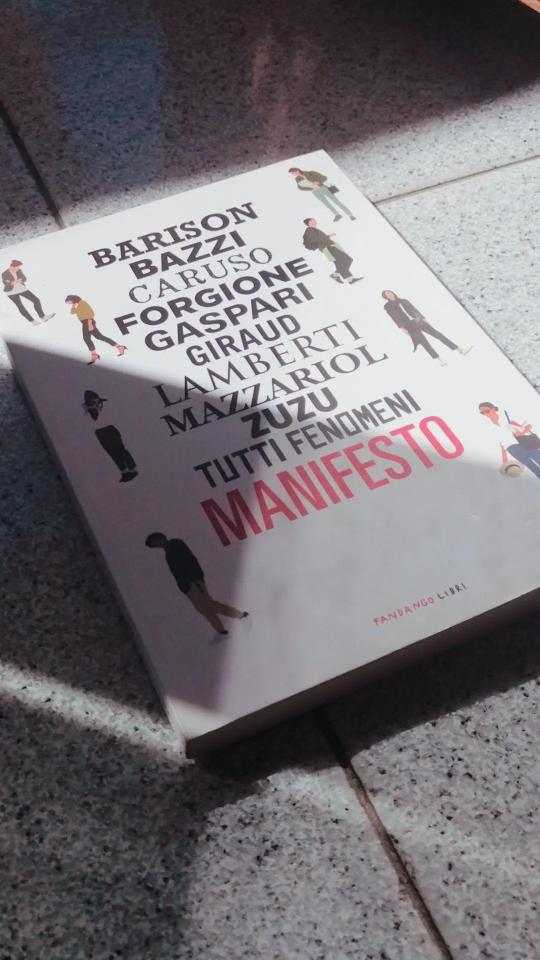


#book#booklr#bookish#book aesthetic#book quotes#fandango libri#manifesto#iacopo barison#zuzu#jonathan bazzi#eleonora c caruso#alessio forgione#ilaria gaspari#michela giraud#ginevra lamberti#giacomo mazzariol#tutti fenomeni#art#my pics
7 notes
·
View notes
Text
[Napoli stanca][Mirella Armiero]
Quasi come Boccaccio: in principio è un giardino. Un ombroso, seicentesco hortus conclusus in cui un gruppo di scrittori si incontra per ragionare su un tema antico e ogni giorno nuovo: Napoli.
Quasi come Boccaccio: in principio è un giardino. Un ombroso, seicentesco hortus conclusus in cui un gruppo di scrittori si incontra per ragionare su un tema antico e ogni giorno nuovo: Napoli. Città dai molti luoghi comuni, dai molti progetti interrotti, transitata dall’immagine oleografica delle cartoline all’estetica ormai manierista delle narrazioni criminali. Napoli agogna una normalità che…
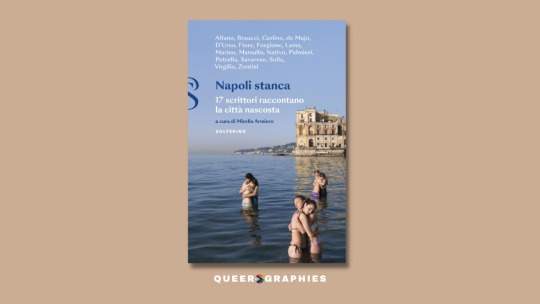
View On WordPress
#2023#Alessio Forgione#Angelo Petrella#Athos Zontini#Benedetta Palmieri#Cristiano de Majo#Davide D’Urso#Diego Lama#Edoardo Savarese#Enza Alfano#fiction#Fortunato Cerlino#Fuani Marino#Gianluca Nativo#Gianni Solla#Italia#LGBT#LGBTQ#Marco Marsullo#Massimiliano Virgilio#Maurizio Braucci#Mirella Armiero#Napoli#Napoli stanca#Narrativa#narrativa italiana#Peppe Fiore#Solferino
0 notes
Text
Dalla bolla FB di Ivano Porpora
"Mi piacerebbe avere una piccola sezione dei 20, 25 libri più rappresentativi dei migliori autori in Italia; e credo che interessi anche i miei allievi, e chi mi segue.
Qui sotto la lista dei libri. Parte l'elezione de L'ALTRO LIVELLO. Potete votarne solo dieci. Se ne votate undici, cancello il vostro commento, perché state portando rumore. Il libro può anche non essere quello: ripeto, per me Nove ha raggiunto l'apice con La vita oscena.
Aldo Nove - Milano non è Milano, 2010
Alessandra Carnaroli - La furia, 2023
Alessandra Sarchi - L’amore normale, 2014
Alessandro Baricco - Mr Gwyn, 2011
Alessandro Piperno - Con le peggiori intenzioni, 2005
Alessio Forgione - Napoli mon amour, 2018
Alessio Mosca - Chiromantica Medica, 2022
Alfredo Palomba, Quando le belve arriveranno, 2022
Andrea Bajani - Un bene al mondo, 2016
Andrea Canobbio -
Andrea Donaera - Io sono la bestia, 2019
Andrea Pomella - L'uomo che trema, 2018
Andrea Tarabbia - La calligrafia come arte delle guerra, 2010
Andrej Longo - L'altra madre, 2016
Antonella Cilento, Lisario o il piacere infinito delle donne, 2014
Antonella Lattanzi - Questo giorno che incombe, 2021
Antonio Manzini - 7/72007, 2016
Antonio Moresco - La lucina, 2013
Aurelio Picca - Il più grande criminale di Roma è stato amico mio, 2020
Benedetta Palmieri - Emersione, 2021
Carola Susani - Eravamo bambini abbastanza, 2012
Claudia Durastanti - La straniera, 2019
Claudia Petrucci - L'esercizio, 2020
Claudio Morandini - Neve, cane, piede, 2015
Claudio Piersanti - Quel maledetto Vronskij, 2021
Daniela Ranieri - Stradario Aggiornato di tutti i miei baci, 2021
Daniele Del Giudice - Orizzonte mobile, 2009
Daniele Mencarelli - Tutto chiede salvezza, 2022
Daniele Petruccioli - La casa delle madri, 2020
Dario Voltolini - Le scimmie sono inavvertitamente uscite dalla gabbia, 2006
Davide Orecchio - Storia aperta, 2021
Demetrio Paolin - Conforme alla gloria, 2016
Domenico Starnone - Vita mortale e immortale della bambina di Milano, 2021
Donatella Di Pietrantonio - L’arminuta, 2017
Edgardo Franzosini - Questa vita tuttavia mi pesa molto, 2015
Edoardo Albinati - La scuola cattolica, 2016
Edoardo Zambelli - Storia di due donne e di uno specchio, 2018
Elena Ferrante -
Emanuela Canepa - Insegnami la tempesta, 2020
Emanuela Cocco - Tu che eri ogni ragazza, 2018
Emanuele Tonon - La luce prima, 2011
Emanuele Trevi - Due vite, 2020
Emidio Clementi - L’amante imperfetto, 2017
Emiliano Ereddia - Le mosche, 2021
Eraldo Baldini - L’uomo nero e la bicicletta blu, 2011
Ernesto Aloia - I compagni del fuoco, 2007
Ezio Sinigaglia - Eclissi, 2016
Fabio Bacà - Nova, 2021
Fabio Bartolomei - We are family, 2013
Fabio Geda - Nel mare ci sono i coccodrilli, 2010
Fabio Genovesi - Esche vive, 2011
Fabio Stassi - L'ultimo ballo di Charlot, 2012
Fabrizio Patriarca - Tokyo transit, 2016
Federico Platania - Il Dio che fa la mia vendetta, 2013
Filippo Nicosia - Come un animale, 2010
Filippo Tuena - Ultimo parallelo, 2007
Francesca Genti - Anche la sofferenza ha la sua data di scadenza, 2018
Francesca Manfredi - L’impero della polvere, 2019
Francesca Marzia Esposito - Corpi di ballo, 2019
Francesca Mattei - Il giorno in cui diedi fuoco alla mia casa, 2019
Francesco Dimitri - Pan, 2008
Francesco Maino - Cartongesso, 2014
Francesco Pacifico - Class, 2014
Francesco Pecoraro - La vita in tempo di pace, 2014
Francesco Targhetta - Perciò veniamo bene nelle fotografie, 2012
Franco Stelzer - Il nostro primo solenne stranissimo Natale senza di lei, 2003
Fulvio Abbate - Roma vista controvento, 2015
Giacomo Sartori - Anatomia della battaglia, 2005
Gian Marco Griffi - Ferrovie del Messico, 2022
Gianluca Morozzi - Blackout, 2004
Gilda Policastro - La parte di Malvasia, 2020
Giordano Meacci - Il cinghiale che uccise Liberty Valance, 2016
Giordano Tedoldi - Tabù, 2017
Giorgia Tribuiani - Blu, 2018
Giorgio Falco - La gemella H, 2014
Giorgio Fontana - Il mago di Riga, 2022
Giorgio Vasta - Il tempo materiale, 2008
Giovanni Dozzini - Qui dovevo stare, 2021
Giulio Mozzi - Le ripetizioni, 2021
Giuseppe Genna - Dies irae, 2006
Greta Pavan - Quasi niente sbagliato, 2023
Helena Janeczek - La ragazza con la Leica, 2017
Ilaria Palomba - Vuoto, 2022
Laura Pariani -La valle delle donne lupo, 2011
Laura Pugno - Sirene, 2007
Letizia Muratori - Casa madre, 2008
Licia Giaquinto - La briganta e lo straniero, 2014
Lorenza Pieri - Il giardino dei mostri, 2019
Lorenzo Mercatanti - Il babbo avrebbe voluto dire ti amo ma lo zio ne faceva anche a meno, 2014
Luca Ricci - Gli autunnali, 2018
Luigi Romolo Carrino - Non è di maggio, 2021
Maddalena Fingerle - Lingua Madre, 2021
Marcello Fois - Nel tempo di mezzo, 2012
Marco Balzano - Resto qui, 2015
Marco Drago - Innamorato, 2023
Marco Mancassola - Last love parade, 2005
Marco Missiroli - Atti osceni in luogo privato, 2015
Marco Peano - L'invenzione della madre, 2015
María Grazia Calandrone, Dove non mi hai portata, 2023
Maria Rosa Cutrufelli - Il giudice delle donne, 2016
Marino Magliani - Peninsulario, 2022
Mario Desiati - Spatriati, 2022
Marta Cai - Enti di ragione, 2019
Massimiliano Santarossa - Pane e Ferro, 2019
Matteo Cavezzali - Nero d'inferno, 2018
Matteo Galiazzo - Cargo, ne 2013
Matteo Melchiorre -Requiem per un albero, 2004
Mauro Covacich - La sposa, 2016
Michele Mari - Leggenda privata, 2017
Michele Orti Manara - Il vizio di smettere, 2018
Michele Vaccari - Un marito, 2018
Niccolò Ammaniti - Io non ho paura, 2001
Nicola Lagioia - La città dei vivi, 2020
Orso Tosco - Aspettando i naufraghi, 2018
Paola Barbato - Zoo, 2019
Paolo Cognetti - Sofia si veste sempre di nero, 2012
Paolo Colagrande - Salvarsi a vanvera, 2022
Paolo Giordano -
Paolo Nori - Vi avverto che vivo per l’ultima volta, 2023
Paolo Zanotti - Bambini bonsai, 2010
Paolo Zardi - Il giorno che diventammo umani, 2013
Piera Ventre - Gli spettri della sera, 2023
Piersandro Pallavicini - Atomico Dandy, 2005
Raul Montanari - Il buio divora la strada, 2002
Remo Rapino - Vita, morte e miracoli di Bonfiglio Liborio, 2019
Romolo Bugaro - Non c'è stata nessuna battaglia, 2019
Rosa Matteucci - Costellazione familiare, 2016
Rosella Postorino - Le assaggiatrici, 2018
Rossana Campo - Dove troverete un altro padre come il mio, 2015
Sacha Naspini - I cariolanti, 2020
Sandro Campani - I passi nel bosco, 2020
Sandro Veronesi - Caos Calmo, 2005
Sara Gamberini - Maestoso è l’abbandono, 2018
Sebastiano Vassalli - Le due chiese, 2010
Sergio Claudio Perroni - Entro a volte nel tuo sonno, 2018
Silvia Ballestra - La Sibilla. Vita di Joyce Lussu, 2022
Silvia Bottani - Il giorno mangia la notte, 2020
Simona Baldanzi - Figlia di una vestaglia blu, 2006
Simona Baldelli - Vicolo dell'Immaginario, 2018
Simona Vinci - La prima verità, 2016
Tiziano Scarpa - Cose fondamentali, 2010
Tommaso Pincio - Panorama, 2015
Tullio Avoledo -
Ugo Cornia - Quasi amore, 2001
Valentina Durante - Enne, 2020
Valentina Maini - La mischia, 2020
Valeria Corciolani - La regina dei colori, 2023
Valeria Parrella - Lo spazio bianco, 2008
Valerio Evangelisti - Noi saremo tutto, 2004
Vanni Santoni - Gli interessi in comune, 2008
Veronica Galletta - Nina sull’argine, 2021
Veronica Tomassini - L’altro addio, 2017
Vincenzo Pardini - Il valico dei briganti, 2023
Viola Di Grado - Fame blu, 2022
Vitaliano Trevisan - Works, 2016
Walter Pozzi - Carte scoperte, 2015
Walter Siti - Troppi paradisi, 2006
Wu Ming - 54, 2002"
Poi è partita una lotta nel fango di scrittori che gridano e si tirano i capelli e dicono meglio quello meglio quell' altro e poi io, ci devo essere io. Ed i miei amici x e y..."
E lui alla fine ha tolto il post.
1 note
·
View note
Text
Lunedì 27 febbraio ore 18 appuntamento
comunicato stampa
al Teatro Mercadante per il ciclo di incontri
LA FORESTA VERGINE. PENSARE NAPOLI
Lo scrittore e regista Ruggero Cappuccio incontra
lo scrittore Pierluigi Razzano
Dopo il grande successo di pubblico avuto con Erri De Luca e Titti Marrone, Viola Ardone e Fabrizio Coscia, Valeria Parrella con Simona Boo e Marco Messina, Maurizio De Giovanni e Enzo D’Errico, Alessio Forgione e…

View On WordPress
0 notes
Text
Littérature/ Boualem Sansal et Alessio Forgione Prix Méditerranée 2021, Aurélien Manya, Michel Canesi & Jamil Rahmani reçoivent la mention spéciale du jury
Littérature/ Boualem Sansal et Alessio Forgione Prix Méditerranée 2021, Aurélien Manya, Michel Canesi & Jamil Rahmani reçoivent la mention spéciale du jury
L’écrivain algérien francophone Boualem Sansal (Abraham ou la cinquième Alliance, Gallimard), en Une, et le romancier italien Alessio Forgione (Napoli mon amour, Denoël) ont reçu le prix Méditerranée 2021.
Abraham ou La cinquième Alliance est le neuvième roman de Boualem Sansal.
En 1916, alors que le premier conflit mondial s’étend au Moyen-Orient, Terah, un vieux patriarche chaldéen, ayant…
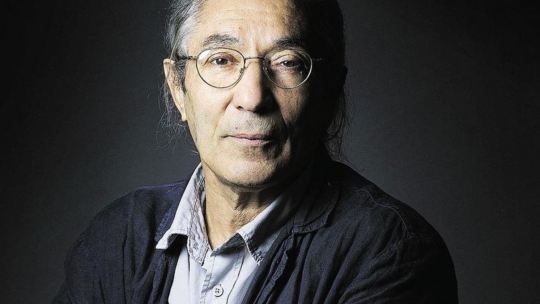
View On WordPress
#2021#Alessio Forgione#Aurélien MANYA#Boualem Sansal#Centre Méditerranéen de Littérature#Jamil Rahmani#Le Journal Catalan#Michel Canesi#perpignan#Prix Méditerranée#Pyrénées-Orientales
0 notes
Photo
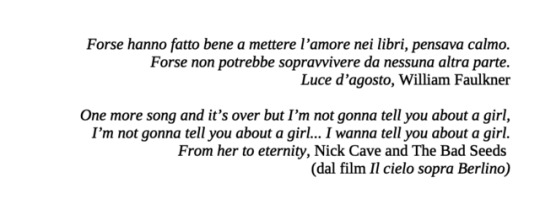
Napoli mon amour (Alessio Forgione, 2018)
0 notes
Text
I have to read a book for a school project but it has the vibes of a south park but set in Naples twitter au
#giovanissimi#irlfriarielli#the book is by alessio forgione#i dont think it has been translated to other languages#it would lose its charm in any language thats not neapolitan tbh#and even in italian it sucks
1 note
·
View note
Text
Quei due frati sconosciuti...
Quei due frati sconosciuti…
di padre Alessio Parente, “Padre Pio e le anime del Purgatorio”, pp. 141-143.
(more…)
View On WordPress
#alessio maria parente#alessio parente#anime purganti#ascetica#fioretti#Francesco Napolitano#grazio forgione#mistica#padre pio#Padre Pio da Pietrelcina#purgatorio#san pio da pietrelcina#suffragi#teologia mistica#testimoni#testimonianze
2 notes
·
View notes
Text
“Se mi fa vergognare, allora è la storia giusta”. Tre domande ad Alessio Forgione, autore di “Giovanissimi”
Giovanissimi narra un mondo di adolescenti a Napoli e Marocco, il protagonista, ha 14 anni. Combattono con il vuoto e l’assenza. È la storia che ti piaceva raccontare o è anche un riferimento più generale a una generazione?
Io scelgo la storia da raccontare che più m’induce vergogna. Se mi fa vergognare tantissimo allora incomincio a pensarci e a furia di pensarci diventa un’ossessione, e siccome sono un pigro mancato e un ossessivo compiuto non incomincio fino a che non posso fare altrimenti. Dopo, mi vergogno tra me e me, poi mi vergogno un po’ in pubblico e, finito il giro, ricomincio con un’altra vergogna.
Leggere è piacevole, scrivere no. Se allo scrittore piace scrivere sono abbastanza certo che ne verrà fuori un libro brutto e vanitoso e che non si tratta di uno scrittore, in questo caso, ma di un grafomane.
Generazione, generazionale e via dicendo sono parole che, abbinate ai libri, sottolineano l’importanza e l’aggregazione insita in un’opera: è capitato tanto a Giovanissimi quanto a Napoli mon amour, il mio precedente romanzo, e ne sono lieto, molto, ma non era mia intenzione, perché non ci credo a queste cose. O meglio: non credo che possano accadere a prescindere. Piuttosto, l’arte non può che essere individuale: parlare di un soggetto e parlarne così bene e approfonditamente da arrivare nel punto dove risiedono una parte delle personalità di tutti.
C’è una geometria nei rapporti tra i ragazzi, un po’ come nel gioco del calcio che pratica Marocco: Lunno, Gioiello, Fusco, Petrone, Marco, poi Maria Rosaria e Serena. A volte sono i gesti, i silenzi della noia, del caldo, gli scoppi di felicità e i cazzotti delle controversie. Linee che definiscono azioni e reazioni, un’atmosfera che fa respirare l’inquietudine dell’assenza. Gli schemi del gioco non funzionano e il goal che aspetti non arriva?
In Giovanissimi il calcio ha la sola funzione di contestualizzare Marocco, il protagonista, e di renderlo isolato rispetto alla sua vita vera. Perché quando hai un talento, piccolo o grande che sia, quel talento ti rende un po’ unico, ponendoti fuori dal branco, e questo per dire che il calcio è irrilevante in questa storia: c’è all’inizio del romanzo e, pagina dopo pagina, va scomparendo, perché Marocco incontra cose, persone, situazioni che, a differenza dello sport, lo appassionano davvero.
Per me, almeno da quanto ho capito fino ad oggi, la vita non ha schemi: ad una data azione non corrisponde, sempre, la reazione attesa e ogni volta accade quel che accade. Infatti, il libro narra del tentativo di Marocco di vincere l’attesa smettendo di aspettare, il suo lanciarsi nell’amore e verso la vita, e poi la vita che arriva.
Non so, dunque. Io ho trentaquattro anni e non farei un figlio nemmeno se mi pagassero, per le responsabilità, i soldi, l’inquinamento acustico e così via e tanti mie coetanei non li fanno perché pensano di dover trovare prima il lavoro giusto, poi la casa giusta, fino a che tutto è giusto. Io stimo molto quelli che lo fanno e basta, costi quel che costi, occupano un posto e si attaccano sul contatore di qualcun altro. Loro sono dei romantici, non io.
Il padre di Marocco, abbandonato dalla moglie, uomo di poche parole, eloquente sul piano della comunicazione emotiva. Con le difficoltà di essere padre di un adolescente che cresce da solo, compie gesti che riescono a dare una direzione alla vita di Marocco e i due hanno una relazione strana e controversa, fatta di silenzi e condivisione dello stesso vuoto. Ho trovato una sorta di somiglianza tra Lunno, il migliore amico di Marocco, e il padre: entrambi mi sono sembrati la realtà che rompe l’equilibrio dei sogni degli adolescenti. Un po’ come la città in cui è ambientato il romanzo, Napoli, che dà e toglie?
Se il romanzo fosse stato ambientato a Londra nessuno avrebbe pensato ad una città che dà e toglie, perché Londra è Londra, e gli italiani hanno un’idea e non gliela togli: Londra è grattacieli, soldi e invece, a ben vedere, è una città incredibilmente povera, popolata di persone povere povere povere, con una povertà che gli scende fin dentro l’anima e gli compromette prima il linguaggio e dopo i pensieri. Invece la città di Giovanissimi è Napoli, che non è Napoli ma una delle sue periferie, ed è la città a dare e togliere, perché alla parola Napoli dobbiamo abbinare le immagini ricorrenti che abbiamo nella libreria della nostra memoria, che c’hanno infilato con la forza e di proposito e allora Napoli è questo e quello, dà e prende ed io sono davvero stanco delle visioni parziali, limitate e limitanti. Napoli, nonostante la sua collocazione geografica nel mondo, è tanto spaccio a cielo aperto quanto una capitale culturale di questo pianeta. A ben vedere, i soli prodotti culturali italiani che funzionano e vengono esportati provengono da Napoli, o meglio: c’è Napoli dentro, un paesaggio che però saccheggiano qui e non altrove, perché Napoli funziona, ha una storia da raccontare, sì, sempre la stessa, ma almeno ne ha una. E non fa niente che se parli con un americano un po’ così e gli dici che sei italiano lui strabuzza gli occhi e risponde “Pizza… Mare… Sole… Caffè…” e questa, che è l’idea che buona parte del mondo ha dell’Italia, non è l’Italia, ma Napoli, posto che a Napoli ci sono migliaia di cose importanti, e non solo queste sciocchezze. E se fosse la nazione, quindi? Se fosse l’Italia a dare e togliere? Qualcuno ci ha mai provato a pensare a questa cosa? Napoli dà e toglie come qualsiasi altro posto del pianeta: io vengo da Soccavo, dove vivo tutt’ora, ovvero nello stesso quartiere di Marocco, e non sono un disoccupato né spaccio, ma uno scrittore, e non sono più intelligente di quello del palazzone di fronte che vende l’eroina, e siamo cresciuti nello stesso posto e siamo stati obbligati a frequentare le scuole fino alla stessa età. Dunque, qual è l’ente che dà e toglie? Napoli? Siamo sicuri? E se Napoli fosse il problema di e per diversi milioni di italiani, com’è che nessuno viene qui ad aggiustare e risolvere il problema? A me, personalmente, Napoli ha dato tutto: è stata il miglior genitore possibile. Punto.
*
La lettura. Le risposte di Alessio Forgione mi hanno (positivamente) colpito, come quando si gioca alla battaglia navale e beccano la tua corazzata: colpita e affondata. Mi sono sentita (positivamente) di fronte a un interlocutore che tra le righe mi ha detto: e su dai, non blaterare troppo, Giovanissimi è così e così. Risposte taglienti e precise. Nette. Alessio Forgione è un po’ come Ken Loach che ti porta negli interstizi della vita comune (nel caso di Giovanissimi quella di adolescenti che crescono a Soccavo, un quartiere napoletano) e non ti fornisce alcuna risposta e men che meno un rimedio. Alessio Forgione è essenziale, rapido, incisivo e, proprio come Ken Loach, poetico perché senza fronzoli. Nell’intervista Alessio afferma “io scelgo la storia da raccontare che più m’induce vergogna”, Ken Loach ha definito il suo cinema “un rifiuto ragionato di accettare l’inaccettabile”. Ammetto di amare molto Ken Loach e dunque ho amato Giovanissimi. Il romanzo va letto per un semplice motivo che non saprei dire altrimenti: è bellissimo; quando sono arrivata alle ultime pagine ho rallentato la lettura, avrei voluto che durasse, che non finisse. Comprendi il finale e pensi no, magari ne avrà scelto un altro, dio ti prego fa’ che ne abbia scelto un altro, ma sai che non è possibile e il finale arriva ed è quello, implacabile e teso come tutta la narrazione. Poi chiudi il libro e ti si apre il vuoto dell’assenza, fai fatica a infilarti in altre pagine, diverse da quelle che hai appena letto. Hai bisogno di dire a Marocco, il protagonista: dammi la mano, resta ancora qui, non te ne andare.
La citazione.“Ci dissanguiamo costantemente e che tutto sanguini, per favore, per sempre, allora, perché il sangue è quello che c’è prima che la vita cominci. La vita. La vita non è altro che un’inconsapevole attesa. Poi arriva, e fa male”.
L’autore. Alessio Forgione è nato a Napoli nel 1986. Scrive perché ama leggere e ama leggere perché crede che una sola vita non sia abbastanza. Il suo romanzo d’esordio, Napoli mon amour, ha vinto il Premio Berto 2019 e il Premio Intersezioni Italia-Russia; in corso di traduzione in Francia e Russia, verrà portato in scena al Teatro Mercadante di Napoli con la regia di Rosario Sparno.
*In copertina: Alessio Forgione, autore di “Giovanissimi” (l’immagine è tratta da qui)
L'articolo “Se mi fa vergognare, allora è la storia giusta”. Tre domande ad Alessio Forgione, autore di “Giovanissimi” proviene da Pangea.
from pangea.news https://ift.tt/30kf4ii
0 notes
Photo

A Padre Pio Inspirational Story
“Father Pio is a giant of sanctity. We wish to thank our Father who is in Heaven for having given rise in the Holy Church of God to a man of great faith, of that unshakable faith that moves mountains and creates gigantic good works in this century of struggles, fratricidal wars and egoism. God has given rise in the Italian Church, in this noble region of Puglia, to a giant of sanctity whose heroic virtues recall men of today to their vocation as God’s created beings and sons of the Father who is in Heaven.” – Cardinal Angelo Sodano, Vatican Secretary of State
__________
Padre Pio and His Friends from East and West
Father Pio Francesco Mandato, F.M.H.J., of Eastern, PA, Danny D’Agosto of Brooklyn, NY, and James Hurlburt of San Diego, CA, each shared their memories of Padre Pio with us for this issue of “Pray, Hope, and Don’t Worry.”
Father Pio Francesco Mandato, F.M.H.J., was born in Italy in 1956 to Graziella and Andre Mandato. His family lived in Pietrelcina, the town where Padre Pio was born and raised. Fr. Mandato’s family and extended family, including his great-grandfather, received many graces through the years from their spiritual father, Padre Pio. Their stories of Padre Pio were told and retold with the greatest pleasure.
Fr. Mandato’s grandmother, Maria DeNunzio once asked a friend who was going to San Giovanni Rotondo to deliver a letter to Padre Pio for her. She fixed her friend a cup of espresso and they had an enjoyable visit. Then he left for the monastery. He was able to talk with Padre Pio and when it was time to say good-bye, Padre Pio surprised him by saying, “Aren’t you forgetting something?” “Not that I can think of,” Maria’s friend replied. “Not only did you enjoy a cup of coffee and a visit with Maria, but you promised her that you would give me the letter that is in your back pocket!” At once he remembered and quickly placed the letter in Padre Pio’s hands.
In Pietrelcina, everyone called Padre Pio, Il Monaco Santo, “the holy friar.” Everyone felt very proud that the “holy friar” was a fellow citizen of Pietrelcina. The people from Pietrelcina were characteristically simple, devout, hard-working, and strong in their Catholic faith. Many people in the area were related or distantly related to each other. Pio Francesco’s mother was related to Padre Pio through her paternal grandmother.
Padre Pio never forgot the town from which he had come. He loved Pietrelcina and he loved the people who lived there. He said that he remembered Pietrelcina, “stone by stone.” Padre Pio wrote a letter to his brother Michael Forgione, who still resided in their hometown and said, “Pietrelcina is totally in my heart.” Regarding his spiritual life, Padre Pio once said, “Everything happened in Pietrelcina. Jesus was there.” It was in Pietrelcina that the Lord began to pour out his graces on the young Capuchin. Padre Pio once made the prophetic statement, “During my life I have cherished San Giovanni Rotondo. After my death I will cherish and favor Pietrelcina.” How fitting that today he is known as St. Pio of Pietrelcina.
During World War II, the people of Pietrelcina were worried about their safety. “Do not worry,” Padre Pio said. “Pietrelcina will be protected.” History bears out the truth of his statement. Padre Pio was transferred to the Capuchin monastery of Our Lady of Grace in San Giovanni Rotondo in 1916 and remained there until his death in 1968. A number of the residents of Pietrelcina moved to San Giovanni Rotondo to be closer to their spiritual father.
Once Paris DeNunzio, Pio Francesco’s grandfather, made a trip to San Giovanni Rotondo from Pietrelcina to see Padre Pio. The road that led up to the monastery was steep and dangerous. Paris’ companion, who was driving, fell asleep at the wheel and the car swerved and veered off the road. Paris, who was very frightened, began praying, “Padre Pio, helps us!” At the last moment, the driver was able to gain control of the car. When they arrived at the monastery and went to Padre Pio’s cell, Paris told his spiritual father about the near accident. “And were you frightened, Paris?” Padre Pio asked. “Yes, I was frightened,” Paris replied. “Well, don’t you know who was driving?” Padre Pio asked. Paris asked him what he meant. “I was driving the car,” said Padre Pio, “and you all arrived safely!”
Paris used to pray daily to Padre Pio, recommending to him his wife, his daughter, his son and other family members. Once when he was talking to Padre Pio, he asked him to pray for his family and began to name them. Padre Pio said to him, “You do not need to tell me their names. I hear their names every day in your prayers.” Another time, Paris was experiencing pain in his chest and was worried that perhaps he had heart trouble. He told Padre Pio about it and Padre Pio replied that there was nothing wrong with his heart. “Of course there is something wrong,” Paris said. “If there wasn’t something wrong, I would not be in so much pain.” Padre Pio told him to stop talking about it. “If you don’t stop, I will give you a punch,” Padre Pio said. He then gave Paris a light punch on his chest. From that moment on, he never experienced another pain in his chest.
Pio Francesco’s mother, Graziella, met Padre Pio for the first time when she traveled to the monastery with her father, Paris DeNunzio. Graziella was ten years-old. When they arrived, they found Padre Pio inside the 16th century friary church of Our Lady of Grace, surrounded by a large group of people. Being small, Graziella was unable to get close to him. She could only see the top of his head. When Padre Pio saw Graziella, he extended his arm over the people, and allowed her to kiss his hand. His eyes made a profound impression on her, an impression that she would never forget.
In 1946, a few days before Christmas, Graziella and her brother made a visit to see Padre Pio. He blessed Graziella by placing his hands on her head. Then in his paternal way, he gave her a fatherly embrace. At once, she became aware of the beautiful scent of roses. She believed that the fragrance was coming from the wound in his side.
One time Graziella told Padre Pio that she had met a man she was thinking of marrying. “Don’t do it. He is not for you. You don’t know what kind of coat he wears,” Padre Pio said to her. She and her father did a little research and found out that the man was a communist. When she inquired about a second suitor, the answer was again a firm “no.” When she finally named a third man, Andre Mandato, Padre Pio said, “The angel of God has passed. Do it with the blessing of God.” She married Andre in 1955.
Because of the popularity of Padre Pio’s confessional, a booking system had to be put in place at the monastery. People would take a ticket and wait for their number to be called. It sometimes required a wait of eight days or more. Once Graziella had a tremendous desire to speak to Padre Pio. The way to speak to him was through the vehicle of the confessional but Graziella did not want to wait that long. She somehow had the courage to approach the confessional without a ticket. The woman at the front of the line told her she could go ahead of her.
Just as she stepped into the confessional, Padre Pellegrino, Padre Pio’s assistant, whose job it was to check tickets, told Padre Pio that Graziella had just entered without a reservation. Padre Pio said to him, “And when she did, who were you watching?”
Graziella was permitted to make her confession regardless and she told her spiritual father that she and her husband were expecting their first child. “You will have a son,” he said. “Name him Pio Francesco.” When her baby boy arrived on July 6, 1956, she was delighted that he shared not only Padre Pio’s baptismal name, Francesco, but also his name in religion, Pio. Padre Pio sent his blessing as well as a medal with the Blessed Virgin on one side and St. Michael the Archangel on the other.
Pio Francesco Mandato was four years old when his grandfather, Paris, took him for the first time to see Padre Pio in his cell. Padre Pio blessed little Pio Francesco and embraced him. Little Pio came just up to the middle of Padre Pio’s waist. Afterward, he told his mother, “Padre Pio has perfume on his tummy.” Graziella told her son that he did not wear perfume. The fragrance was a spiritual gift that the Lord had given him, one among many gifts. It was a sign of grace for those who perceived it.
Paris took little Pio Francesco with him a number of times to the monastery to visit Padre Pio. The men were allowed to go into a gathering area and converse with Padre Pio. Women were not allowed. Pio Francesco remembers what joyful occasions they were for all concerned. In the presence of a number of Capuchins and laymen, Padre Pio enjoyed the fellowship and he loved to tell jokes and to make his friends laugh.
Seven year-old Pio Francesco and his younger brother Vincent received their first Holy Communion from Padre Pio on October 3, 1964, on the feast of the Transitus of St. Francis of Assisi (the celebration of the death of St. Francis of Assisi). Afterward Padre Pio said to the young boys, “I pray that your last Holy Communion will be even more beautiful than your first.” Pio Francesco remembers the solemnity and the great devotion with which Padre Pio celebrated Mass. Although his Mass was long, the time seemed to pass very quickly. Another remarkable aspect of Padre Pio’s Mass was that although it was always very crowded, a profound silence pervaded the church.
The Mandato family emigrated to the United States in 1964 and settled in New Jersey. Naturally, they missed Padre Pio immensely. Father Alessio Parente, Padre Pio’s secretary, relayed a message to Graziella from Padre Pio. He said, “Tell Graziella that I always have her present in my prayers and I am united to her whole family.”
On September 22, 1968, Graziella had a vivid dream of Padre Pio. “I come to say goodbye to you,” he said. She said to him, “Don’t leave,” and he replied, “The Lord is calling me.” The next day Graziella learned that he had passed away in the early morning hours.
Pio Francesco Mandato was ordained to the priesthood in Hoboken, New Jersey in 1985. He and his family made a trip to Italy so that he could celebrate his first Mass in Pietrelcina at the Madonna Della Libera altar (Our Lady of Liberty), at Our Lady of the Angels parish. It was the very same church and altar where Padre Pio had celebrated his first Mass on August 14, 1910.
Today, fifty year old Father Pio Francesco Mandato, F.M.H.J., belongs to the Franciscan Missionary Hermits of St. Joseph and lives in Eastern Pennsylvania. He continues to live out his priestly vocation in the spirit of St. Francis of Assisi. He feels that Padre Pio is still guiding him and helping him on his spiritual journey. “More than anything else, I remember Padre Pio as a very loving man, like a loving father,” Father Pio Francesco said. The words that Padre Pio said to his mother so many years before remain a consolation to him, “Tell Graziella that I always have her present in my prayers and I am united to her whole family.” Father Pio Francesco Mandato continues to carry on the work of the Lord.
“Don’t doubt my prayers, which are certainly poor, but still solicitous for you. I have never ceased, nor will I cease to pray to the most sweet God that He may be pleased to accomplish His holy work in you; that is, that you may have a strong desire and intention to reach perfection in the Christian life; a desire which you must love and nurture tenderly in your heart, as the work of the Holy Spirit, and a spark of His Divine fire.” – St. Pio of Pietrelcina
______________________________
James Hurlburt shared his testimony at the Padre Pio Devotions in San Diego. When he talked about seeing Padre Pio for the first time, James was visibly moved, and it was hard for him to continue speaking. James said, “The experience of seeing Padre Pio in prayer was so powerful that I still cannot talk about it without crying.”
James Hurlburt “I spent 24 years in the U.S. navy, and as a chief petty officer, I had become accustomed to many deployments in a number of different countries around the world. However, there is one trip that stands out among all the rest. It was my visit to the monastery of Padre Pio in 1960. It has remained one of the greatest experiences of my life.
At that time, the ship I was assigned to was stationed in Naples, Italy where we serviced navy ships of the 6th Fleet. My shipmate, Stan had met an Italian man who had told him about Padre Pio. They had decided to go to San Giovanni Rotondo to see Padre Pio and invited me and one other shipmate to go with them. I had never heard of Padre Pio but the idea of taking a few vacation days appealed to me. I thought it would be enjoyable to see the southern part of Italy and so I accepted the invitation.
When we arrived at the monastery in San Giovanni Rotondo, I noticed many women dressed in black with rosaries in their hands, climbing solemnly up the stone steps to the entrance of the church. The next day we visited the church in the afternoon and saw many of the same devout ladies, rosaries in hand, praying. I noticed a young priest who was sitting in the church and he acted strangely. He seemed ill-at-ease as he shifted around in his seat. He somehow didn’t seem to belong there among so many devout people.
On Sunday morning we got up early to attend Padre Pio’s Mass. We were there well before the Mass began and found seats on the left side of the church, near the altar. I looked up in the balcony and saw Padre Pio. It almost took my breath away. He was kneeling and had his hands folded in prayer. He seemed to be totally wrapped in God. Motionless, he was looking up at a fixed point. He remained completely still for what seemed like a long time. I felt like I was looking at Jesus. I will never forget it as long as I live.
His Mass too, was unforgettable. From our seats near the altar, we could see him well. His movements were slow and reverent. It was very impressive to see him as he opened the tabernacle and then prayed. He seemed somehow to be out of his earthly existence, talking to Jesus. He seemed to be in Heaven.
After the Mass, we went to a small reception room near the church. We could hear Padre Pio’s booming voice, full of authority, speaking to someone nearby. He was speaking to the priest who had seemed so troubled the previous day. Our Italian companion told us that Padre Pio had said to the priest, “You must go to confession if you want to save your soul!” Then the young priest left the church.
The next morning we left for Naples to return to our ship. What began as just a sightseeing trip across Italy turned out to be a glimpse into the world of the supernatural. The visit to San Giovanni Rotondo was a profound experience and it had a great impact my life. I am now 89 years old. Seeing Padre Pio and attending his Mass is a memory that I will cherish forever.”
“We belong eternally to God to love and bless Him always, and I live wholly in Him and His Divine Son.” – St. Pio of Pietrelcina
______________________________
Donato (Danny) D’Agosto, growing up in Controne, Italy, had always heard talk about Padre Pio, and had a desire to visit him. However, San Giovanni Rotondo was a long distance away and Danny could not afford to make the trip.
In 1954, when Danny was eighteen years old, he emigrated with his family to the United States. He took a bus to the boat that would take him to his new home and as the bus passed through the city of Pompeii, Danny noticed the beautiful church of Our Lady of Pompeii (Padre Pio had always had a great devotion to Our Lady of Pompeii). Passing the church, Danny made a promise to God that he would someday return to Italy and fulfill his dream of meeting Padre Pio, and he prayed, asking for God’s help and blessing in the matter.
Danny and his family settled in Brooklyn, New York. Four years later, when he was 23 years old, Danny had saved enough money to return to Italy and realize the desire of his heart. He managed to get a personal meeting with Padre Pio. “It was 5:00 a.m. when I arrived at the church,” Danny said. “Padre Pio was there greeting visitors in the sacristy before Mass. I knelt down to kiss his hand and my heart was full of emotion. Padre Pio looked at me and said, ‘You kept your promise. You came to see me!’ Padre Pio had never seen me before and had no way of knowing about the prayer and the promise I had made to God four years earlier. It still gives me the chills when I think about it.”
Danny had a desire to honor Padre Pio in a special way in New York, where he has lived for the last fifty-two years. With the permission of the parish priest of Our Lady of Mount Carmel, in Brooklyn, Danny purchased the property across the street from the church and built a shrine to Padre Pio. A large statue of Padre Pio sits behind a glass partition in an attractive alcove where many visitors come to pray. Pilgrims to the shrine have included two Bishops and one Cardinal.
The shrine remains a work in progress. Danny was able to have the name of the street facing the shrine changed to “Padre Pio Way.” Mass is celebrated at the shrine on Padre Pio’s birthday, May 25 and on September 23, the day that he died. “Padre Pio was like a light, like a bright and shining star,” Danny said.” “His holiness was tangible.”
“Where did Padre Pio get that light which he so successfully communicated to all those who met him? Undoubtedly from prayer, in listening to God, in prolonged penances, but above all through the celebration of the Mass which was the center of his existence.” – Pope John Paul II
__________
What Makes Up True Holiness
As a Capuchin priest, Padre Pio led a life of profound holiness. He wrote a beautiful reflection on holiness:
“Let us keep before our minds that which makes up real holiness. Holiness means getting above ourselves; it means perfect mastery of all our passions. It means having real and continual contempt for ourselves and for the things of the world to the point of preferring poverty rather than wealth, humiliation rather than glory, suffering rather than pleasure. Holiness means loving our neighbor as our self for love of God. In this connection holiness means loving those who curse us, who hate and persecute us and even doing good to them. Holiness means living humbly, being disinterested, prudent, just, patient, kind, chaste, meek, diligent, carrying out one’s duties for no other reason than that of pleasing God and receiving from Him alone the reward one deserves.” – Padre Pio (Letters III)
3 notes
·
View notes
Text
" Passa un giorno, ne passano due. Non sono amareggiato, né nervoso. Ci si abitua a tutto, anche all'eventualità di non essere la felicità di nessuno. Vorrei solo sapere cosa le sta accadendo nella testa e se sta bene. In realtà, non m'importa nemmeno più di tanto. Ci penso e mi dispiace, perché vorrei che m'importasse. Mi sforzo, ma non ci riesco. Poi, mi manda un messaggio in cui dice che per lei non funziona, che ci sono questo e quel problema, che non è il periodo giusto, che ci sono state cose, prima, che non ha funzionato e che vanno sistemate prima quelle. "
_[manifesto] "Che succede, ora?" di Alessio Forgione
0 notes
Text

Proposti dagli “Amici della Domenica”, per l’edizione 2022 del Premio Strega, i libri di: Fabio Bacà, Dario Buzzolan, Alessandra Carati, Mario Desiati, Costanza DiQuattro, Maddalena Fingerle, Alessio Forgione, Giorgio Ghiotti, Alfredo Palomba, Antonio Pascale, Gilda Policastro, Eduardo Savarese
0 notes
Text
LIBRI - “Il nostro meglio” di Alessio Forgione
LIBRI – “Il nostro meglio” di Alessio Forgione
Mi ha molto colpito una recensione trovata su un settimanale riguardo questo libro. Una recensione che, da brava recensione, mi ha “alleccurito”, come dico di solito quando qualcosa mi mette l’acquolina in bocca.
Alla fine ho comprato il libro dal libraio. E questa cosa di comprare i libri dal libraio, spero abbiate pazienza, la voglio approfondire. Perchè comprare libri sugli store online o in…
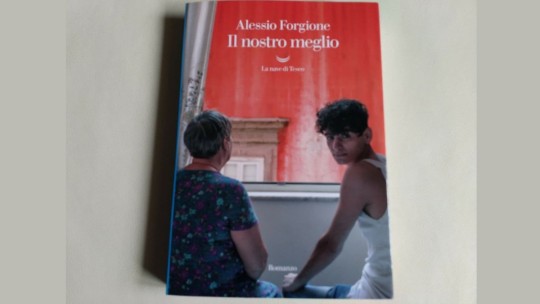
View On WordPress
0 notes
Text
Boualem Sansal et Alessio Forgione prix Méditerranée 2021
Boualem Sansal et Alessio Forgione prix Méditerranée 2021
L’écrivain algérien francophone Boualem Sansal (Une) (Abraham ou la cinquième Alliance, Gallimard) et le romancier italien Alessio Forgione (Napoli mon amour, Denoël) ont reçu le prix Méditerranée 2021.
Abraham ou La cinquième Alliance est le neuvième roman de Boualem Sansal. En 1916, alors que le premier conflit mondial s’étend au Moyen-Orient, Terah, un vieux patriarche chaldéen, ayant compris…
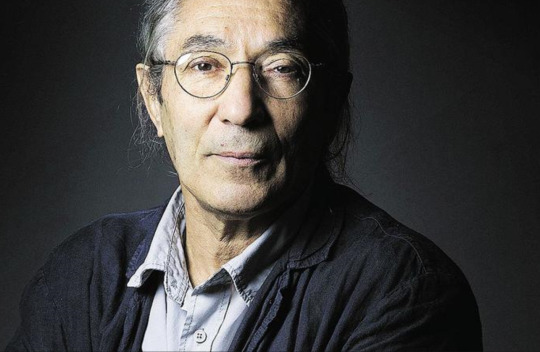
View On WordPress
#2021#Abraham ou la cinquième Alliance#Alessio Forgione#Boualem Sansal#Centre Méditerranéen de Littérature#Le Journal Catalan#Napoli mon amour#perpignan#Prix Méditerranée#Pyrénées-Orientales
0 notes
Text
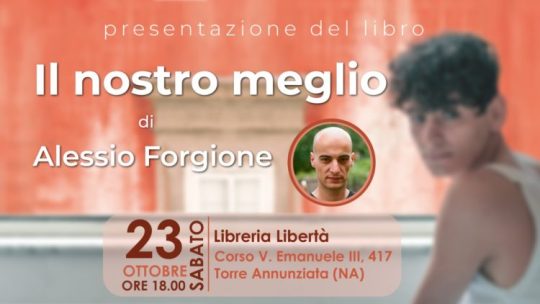
Alessio Forgione ospite della libreria Libertà di Torre Annunziata http://dlvr.it/S9shrg
0 notes
Text
Il terzo appuntamento della rassegna "Fuori dalle Righe Summer" alla Torre di Mola di Formia
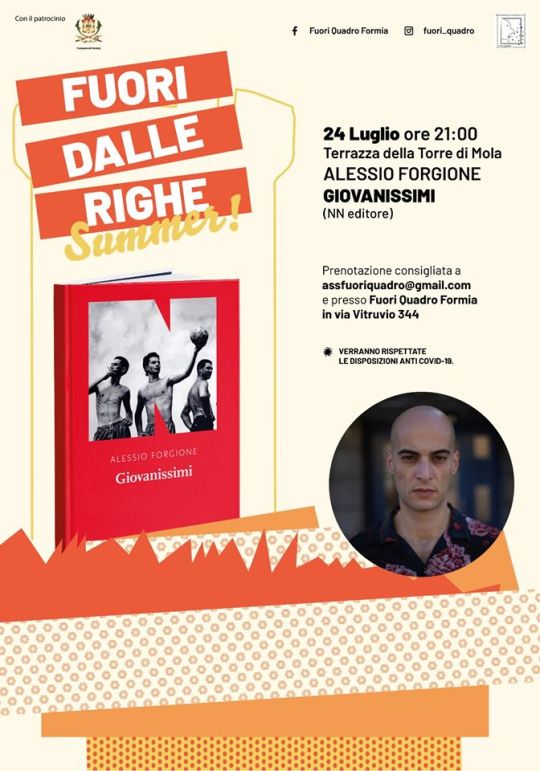
LocandinaRoma, 08-12-2019 FORGIONE Alessio, writer © BASSO CANNARSA - Alessio ForgioneAlessio Forgione
Dopo Nadia Terranova e Graziano Graziani, il terzo appuntamento dellarassegna estiva "Fuori dalle righe summer" promossa dall’associazione Fuori Quadro con il patrocinio del Comune di Formia. L' appuntamento è per il 24 luglio alle ore 21:00 sulla bellissima terrazza della Torre di Mola con Alessio Forgione e il suo “Giovanissimi” (NN editore) nella dozzina del Premio Strega 2020. Marocco ha quattordici anni e vive con il padre a Soccavo, un quartiere di Napoli. La madre li ha abbandonati qualche anno prima, senza dare più notizie di sé, e lui vive quell’assenza come una ferita aperta, un dolore sordo che non dà pace. Frequenta il liceo con pessimi risultati e le sue giornate ruotano attorno agli allenamenti e alle trasferte: insieme a Gioiello, Fusco e Petrone è infatti una giovane promessa del calcio, ma nemmeno le vittorie sul campo riescono a placare la rabbia e il senso di vuoto che prova dentro. Finché non accadono due cose: l’arrivo di Serena, che gli porta un amore acerbo e magnifico, e la proposta di Lunno, il suo amico più caro, che mette in discussione tutte le sue certezze. Dopo l’esordio con Napoli mon amour, Alessio Forgione torna con un romanzo di prime volte, e ci racconta un mondo di ragazzini che crescono da soli,tra desideri di grandezza e delusioni repentine, piccoli crimini e grandi violenze, in attesa di scorgere il varco che conduce all’età adulta.
#cultura
Read the full article
0 notes